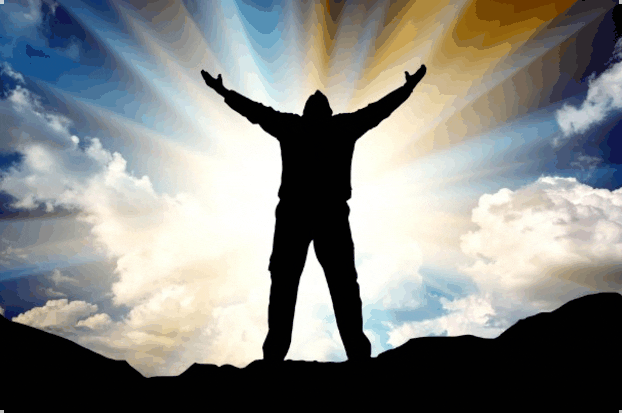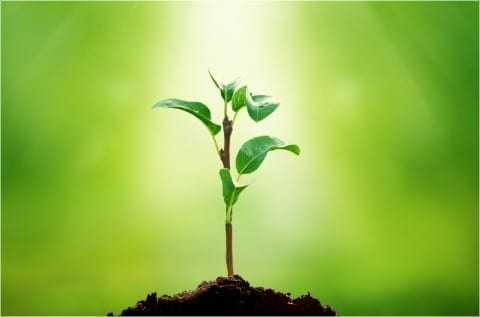It is probably the focus and goal of most societies on earth. In the popular culture of the West, happiness is set up as the ultimate achievement. A very large part of human striving is aimed at achieving happiness and the means to secure it. People long to be happy.
QUESTIONS
What is the Jewish view of this subject? Are we meant to be happy? Are we meant to strive for happiness? Is happiness a Jewish goal? Is it a mitzva, a commandment? What is the path that leads to happiness in a world of ordeals?
And is it possible to achieve happiness in a sad world? How can you be happy while you know that there are people suffering – do you forget them long enough to have a good time? Should you really forget their pain so that you can enjoy yourself? And how are those individuals who suffer meant to rise above their suffering and be happy? Is that possible? Let us analyze this subject.
Firstly, is it a mitzva to be happy? There is no direct commandment to be happy; it is not one of the 613 formal commandments of the Torah. And yet we find statements in the Torah and in the words of the Sages to the effect that we should be happy. Why? What sort of obligation is this? Why is it not expressed as a commandment if it is worth striving for?
“Serve Hashem (“the Name” of God) with joy.” Here it would seem that we are obliged to be happy; the verse states thus. Again, what is the nature of this obligation?
Also, when the Torah describes the horrific curses which will befall the Jewish people if we fail to live up to our Torah obligations, after listing the most agonizing holocaust-type brutalities which we will suffer, it states the reason for these horrors: “Because you did not serve Hashem your God with joy…” It appears, almost incredibly, that the reason for our immense suffering throughout history is that we failed to be joyous – is this possible? Is it even conceivable? Is that the problem – lack of joy?
And anyway, how can you be happy in a world full of suffering without becoming tremendously insensitive to that suffering? How many people do you have to know who are suffering intensely before it affects your ability to be happy?
Surely, if you are aware of even one person who is in pain you should be unable to rejoice. How can you be aware of an individual’s suffering and have a good time? And if you manage to be happy by forgetting that individual, surely that is tremendous insensitivity? Yet how can you be happy if you do not forget – surely rejoicing while you are aware of someone’s pain is even more insensitive?
The world’s approach to this problem is simply to forget, to become unaware, to block out the awareness of human suffering and sadness and to have a good time anyway.
But that is not Judaism. Judaism requires and develops awareness, not forgetfulness. We do not forget that the world is full of pain; we do not forget those who suffer.
How then do we achieve happiness?
Even more difficult is the question of happiness for those very people who are suffering. How do you put aside your own pain and achieve happiness? Is it possible? The Torah sources that speak about the obligation to be happy do not distinguish between people who are comfortable and those who are in pain. It seems that everyone is required to be happy – what does this mean and how is it to be done?
And seemingly impossible to understand, Torah sources suggest clearly that everyone should be happy always – surely this is downright impossible? What about the mitzva of mourning, for example? How on earth can one be happy in the face of a situation which demands the response of mourning?
The great Chazon Ish, Torah leader of the previous generation, makes a statement in one of his letters which seems so extreme that it appears impossible to understand. Loosely translated, he states: “For one who knows the light of truth, there is no sadness in the world.” No sadness in the world? How can anyone make such an assertion? The Chazon Ish himself lived through the agony of the Second World War; he had his own personal tragedies. How can a man say such things?
THE ANSWER
The answer to these questions is one of the most important secrets of life; understanding it well can make the difference between a life of frustration, even depression, and success. Very few subjects are as critical to self-fulfillment as this.
The answer depends on understanding correctly what happiness is:
Real happiness is what you experience when you are doing what you should be doing.
When you are moving clearly along your own road, your unique path to your unique destination, you experience real happiness. When you are moving along the path that leads to yourself, to the deep discovery of who you really are; when you are building the essence of your own personality and creating yourself, a deep happiness wells up within you. The journey does not cause happiness – the journey is the happiness itself.
And amazingly, the expression on your face may not be a smile. The face may reflect pain, the face may be tearstained and taut with strain; but if the journey is proceeding, if you are aware that you are building what you must build, your heart will be singing within you despite the pain of your body and the tears on your face.
And even more amazingly, your heart will be singing because of the pain. This needs explanation; let us think into it carefully.
The truth is that the journey of life is always made against resistance. Life is work, and work is always performed against resistance. When you strain against the resistance of ordeals and difficulties and move ahead, when you perceive that you are winning the battle and moving, building, your deepest essence experiences happiness even while your body is aching. And that happiness is generated by the experience of moving ahead against resistance, building when the building is difficult. Things that come easy give only a superficial happiness; if no work is invested there can be very little satisfaction.
One or two practical examples will make this idea clear.
Imagine you are carrying rocks and heavy logs and assembling them in the heat of the day. You are building something important and you have limited time. You sweat and shake with effort as you labor to complete your task, working against time and the limits of your physical abilities.
What do you experience as you see the result taking shape? What emotion fills you as you realize that you will complete your task in time? What deep and rich feeling swells within despite your raw hands, shaking limbs and grime-streaked face, despite the gasps of exertion and the tears of pain and effort?
There is no doubt that the inner experience is happiness. The fact that the outer expression is one of pain is irrelevant; on the contrary, if the pain is a measure of your effort, if the pain is felt because you are giving all to do what you must do, that pain is the cause of the joy. In fact, it is the joy itself.
Words are inadequate to express the depth of what is happening here, but if you have ever really struggled and suffered to build, you will know exactly what is meant.
And if you have never struggled and suffered to build anything, you have not lived.
Consider another illustration.
Imagine a newcomer to civilized society. He is taken on a tour of mankind’s activities. Let us suppose that the first place our visitor inspects is a modern gymnasium, one of those establishments in which people exercise on machines and lift weights. Let us say that our visitor peeps through the keyhole and witnesses a young man exercising on a machine or lifting extremely heavy weights. On the young man’s face is an expression of agony; sweat is pouring from him and he appears close to the limit of human endurance. His body is racked by tremors of exertion as he strains to lift weights at the very limits of his ability.
There can be little doubt that our visitor would conclude that our young man is being tortured. He would immediately decide that just beyond his range of vision there must stand a menacing aggressor with a weapon trained on this unfortunate victim who is being cruelly worked to exhaustion.
But the truth is that the young man is working voluntarily. No-one is forcing him. In fact, he is paying for the privilege of being able to work thus. And most important of all: he is loving every moment! And anyone who has ever engaged in that sort of effort knows that the pain is the pleasure.
The pain is the pleasure because it is the pain that is building what he wants to build. If that young man wants to build muscle, he knows that it is the effort that builds that muscle. The pain is the measure of the effort; the pain is the exact measure of how much is being built. Without the pain, there can be no building. Without the straining against resistance there can be no progress. As they say in those circles which deal with such things: “No pain, no gain.” True.
Adapted from The Thinking Jewish Teenager's Guide to Life by Akiva Tatz, Published by Targum Press





